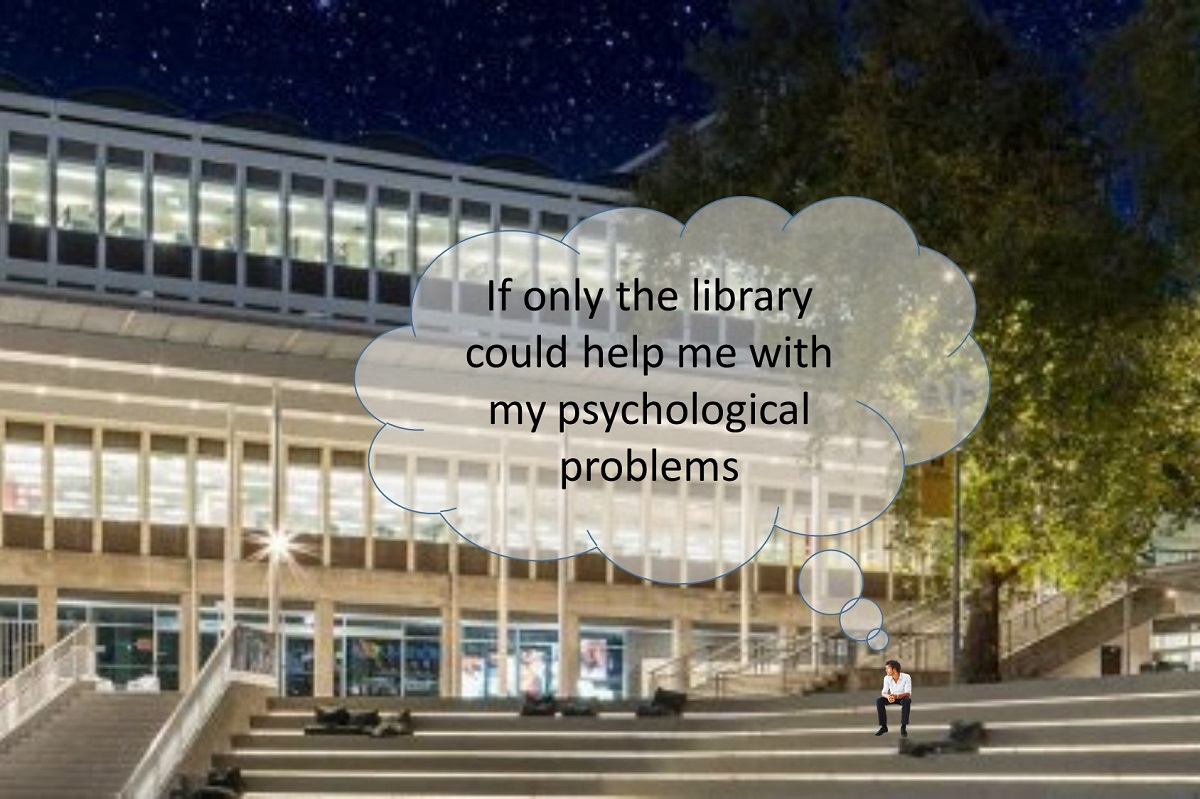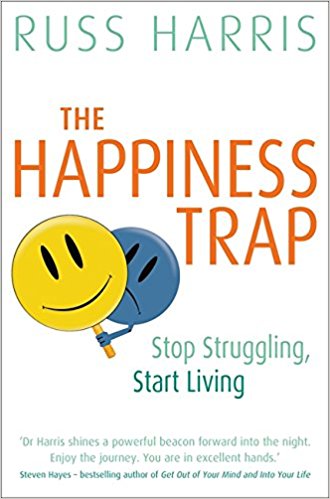
When I think ‘University Library’, I remember the hours I spent in the library photocopying journal articles for psychology papers.
But things have got a lot more fancy since I was studying. Everything is electronic. That includes research papers, but also other books that might be helpful to you during your time as a student.
And that includes self-help books.
[As a brief aside: self-help books get a bad name because often we overestimate the impact these books will have in our lives. I think the value of self-help books lies more in gaining new and alternative perspectives on life, and over time, learning which of those perspectives is most helpful in your life. Don’t expect a single self-help book to transform your life or fix every problem you have. Rather see it as you sampling different perspectives on life, in your journey towards refining your own views]

The Happiness Trap is arguably the most popular self-help book written for the general public about the ideas of Acceptance and Commitment Therapy (ACT) and how to apply them in your own life.
The reason is, the author, Dr Russ Harris, has both a white man afro, and also a long history of teaching ACT to professionals and the general public. He is very good at it.
I don’t want to spoil the content of book, but briefly:
The ‘A’ in ACT – Acceptance, refers to how we approach the often challenging internal world of our minds – how we deal with difficult thoughts, feelings and sensations.
The ‘C’ in ACT – Commitment, refers to honing in on the things that give our lives meaning and purpose, and pursuing them with focus.
The original, more text-heavy version of the Happiness Trap is still a very easy book to read, but I do like the combination of text and illustrations in the Pocketbook version. It reminds me of those excellent Youtube videos that use animations to describe complex concepts (e.g. minutephysics)
Although it is 17 chapters, I was able to read through the whole book in under an hour. That being said, I don’t recommend reading it this quick. That was just to confirm that it is not an onerous read.
Typically, a love of self-help books and programs means a hit to the wallet. Books are certainly cheaper these days, but it can still be very expensive to indulge a love of self-help books.
The awesome thing about being a student however is you have access to a library and they, through what I believe is a combination of subscriptions and black magic, have access to a lot of cool stuff!
The Happiness Trap Pocketbook edition, for example, can be read for free, using your Flinders account. Thank you library 🙂
I’ll leave you now to go have a look at the book, but I will highlight some other excellent self-help resources from the library in future posts.
In the meantime, have a read of the Happiness Trap Pocketbook and throw a tweet to the library to thank them for having access to all these wonderful books 🙂 – @FlindersLib
Also, let me know how you find the book. If it is helpful, we can explore other ideas from ACT in future posts.

